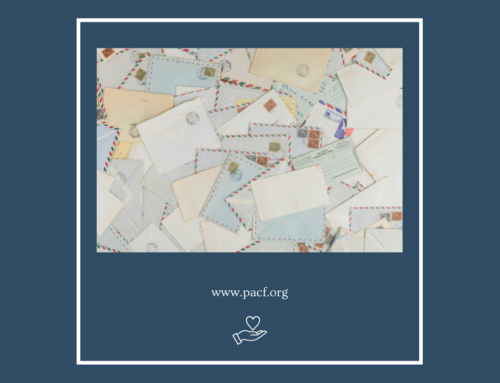Welcome to summer! Here are six tips for planning your charitable giving for the months, years, and even decades ahead. The Community Foundation team is always here to help!
Donate appreciated stock to your fund at the Community Foundation.
We know how easy it is to write a check to boost your donor-advised or other type of fund at the Community Foundation. Consider donating appreciated stock to your charitable giving account instead. Giving shares of long-term appreciated stock can qualify you for a charitable tax deduction at the fair market value. When the Community Foundation sells the shares, your fund won’t be subject to capital gains tax. Selling the shares yourself reduces the amount of cash available for donation due to the tax hit. Contact the Community Foundation to learn more about this tax-savvy giving technique.
Plan ahead for your business exit.
Charitable giving can be a key factor in your exit strategy if you own a private business. You could be sitting on substantial unrealized capital gains if the business has grown a lot over time. Upon sale, capital gains tax will be triggered, reducing the proceeds you get to keep. No capital gains tax will apply to the sale of the portion of the business owned by your the fund at the Community Foundation. You can qualify for a charitable income tax deduction in the year of the transfer based on the fair market value of the shares–not the cost basis, as would be the case if you’d transferred the shares to a private foundation. This strategy requires careful planning, so contact the Community Foundation well in advance. We can work with you and your advisors to achieve your charitable and financial goals.
Start paying attention now to the estate tax exemption sunset.
The estate tax exemption–the total amount a taxpayer can leave to family and other individuals during their life and at death before the hefty federal gift and estate tax kicks in–is scheduled to drop after December 25, 2025. For 2024, the estate tax exemption is $13.61 million per individual, or $27.22 million per married couple, an increase over 2023 thanks to adjustments for inflation. Later this year, the IRS will issue inflation adjustments for 2025. For 2026, without legislation to prevent it, the exemption is scheduled to fall back to 2017 levels, adjusted for inflation, which would roughly total $7 million per person. This drop means more people may face estate tax soon. The team at the Community Foundation is happy to work with you and your advisors to explore how charitable giving techniques can help you avoid estate tax and leave a legacy. Start planning now!
If you can take advantage of the QCD, do it.
A Qualified Charitable Distribution (“QCD”) is a smart way to support charitable causes. If you are over 70 ½, you can direct up to $105,000 from your IRA to certain charities. This includes a field-of-interest or designated fund at the Community Foundation. If you’re subject to the rules for Required Minimum Distributions (RMDs), QCDs count toward those RMDs. Through a QCD, you avoid income tax on the funds distributed to charity. Our team can evaluate if the QCD is a good fit for you.
Review your IRA beneficiary designations.
When reviewing your assets and beneficiary designations, pay close attention to tax-deferred retirement plans like 401(k)s and IRAs. While it’s typical to name your spouse as the primary beneficiary, consider naming a charity, such as your fund at the community foundation, as a secondary beneficiary. This can be a tax-efficient way to support your favorite causes upon your death and establish a philanthropic legacy. A bequest like this avoids not only estate tax and income tax on retirement plan distributions. That’s why non-retirement fund assets may be better-suited to pass to children and grandchildren.
Embrace a holistic approach to philanthropy.
Charitable giving with the Community Foundation is easy, flexible and rewarding. As the hub of your charitable giving, we offer a wide range of fund types, services, and ways for you and your family to get involved in community. Many use a donor-advised fund for annual giving to charities. We can also help you establish designated or field-of-interest funds. Designated funds support a specific charity long-term, while a field-of-interest funds focus on particular community needs. We’d be honored to help you structure a bequest to the Community Foundation in your estate plan to support important causes and our work beyond your lifetime. We are here to help you maximize your philanthropic intentions.
Contact Us
For more information, contact Steven Spinner, at sspinner@pacf.org or Gabrielle Markand, at gmarkand@pacf.org. We’d love to work with you to set up your charitable giving to support your favorite causes, as well as work together to ensure that you’ll meet your charitable goals.






